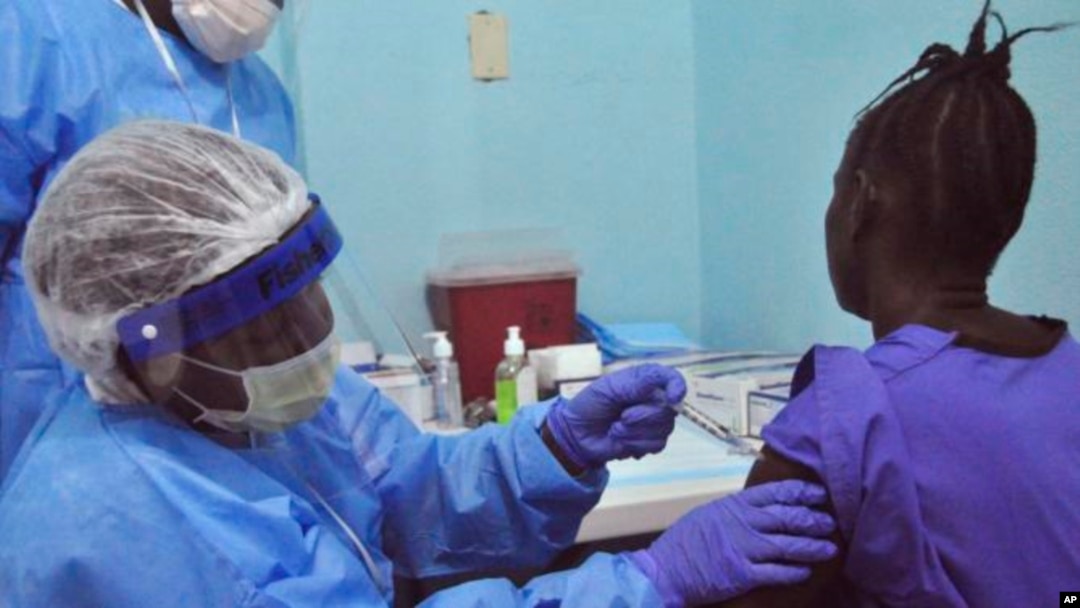A Liberian health ministry official said the government is pleased with the number of people who turned out Monday to participate in the first human trials of two potential Ebola vaccines.
Tolbert Nyenswah, Liberia’s assistant minister of health for preventive services and head of the country’s Ebola response, said nine people were enrolled on the first day of the vaccine trial.
Wissedi Sio Njoh, director of operation with the vaccination campaign, told The Associated Press on Monday, they were hoping to enroll 12 people on the first day. "Hopefully, the number will increase as we go along," Njoh said.
Nyenswah said the government hopes to inoculate 600 people around Monrovia, with as many as 27,000 people eventually taking part around the country.
“I think the first day of the trial went very well," he said, adding, "We were able to explain to the Liberian people the benefits of the trial, that the trial vaccine cannot give you Ebola."
'Lasting solutions'
A vaccine "is intended to provide lasting solutions," he said. "Prevention is better than a cure, and having a vaccine for Ebola is highly critical."
Nyenswah said if the vaccine is effective, Liberia will have made a significant contribution to the world.
“Liberia is making history amongst nations in the world; that is, if this vaccine is efficacious and effective, we can find a lasting solution of prevention for the Ebola virus disease that struck the region, Liberia, Guinea and Sierra Leone on a very unprecedented level,” Nyenswah said.
He said the trial, which is being held at Redemption Hospital in Monrovia, is the result of collaboration between the Liberian Ministry of Health and the U.S. National Institutes of Health.
Liberian health official Dr. Fredrick Ketty said Monday this is a chance for Liberia to make history.
"A small country that would have been completely wiped out because of Ebola now is turning the reverse to saving the entire world. Can you imagine? Can you imagine what will happen?" Ketty said.
Nyenswah said the government understands the fears and suspicions of some Liberians about the vaccines. However, he said it was able to dispel rumors by providing accurate information to its citizens.
“The speculation and the skepticism of the population are reasonable, but what we need to do is provide additional information to them on what the vaccine is about. And so we are doing this,” Nyenswah said.
Easing fears
He said some Liberians who volunteered to take the vaccine helped inform the public by taking to the airwaves to give testimonials, thereby helping to ease fears.
The trials come as the number of Ebola cases in Liberia has been decreasing significantly.
Nyenswah said Liberia right now is reporting less than one new case per week, compared to the first week in November 2014 when the country was reporting 12 cases per day.
“This decline may cause us to move into other countries where transmission is still taking place to get the number that is needed to reach a conclusion on the trial,” Nyenswah said.
The World Health Organization said the Ebola epidemic has infected more than 22,000 people and claimed more than 8,900 lives over the past year.
Your browser doesn’t support HTML5
Butty interview with Nyenswah


